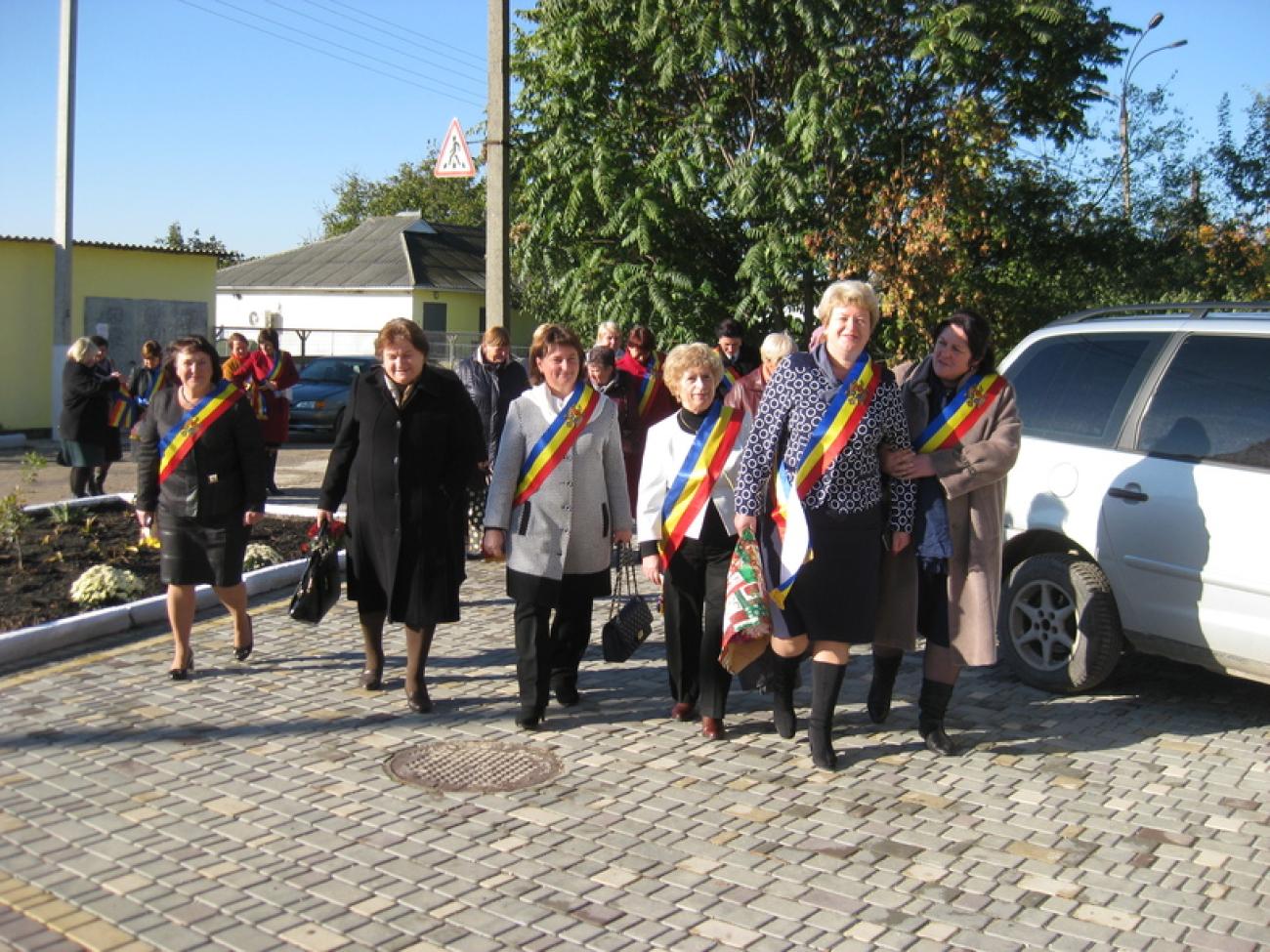Women Mayors from Moldova learn about models of good practices from the North of the country

30 women mayors and councillors from all over the country participated in study visit in Fundurii Vechi village, Glodeni district.
This visit is the last in a series of exchanges of experience, aimed at strengthening the leadership skills of women mayors in local public administration.
Fundurii Vechi village, located at 146 km from Chisinau, is known for the implemented projects and renovated institutions and became a model-locality for the women mayors, who participated in the last study visit. Zinaida Diaconu, mayor in the first term in Pietris village, Falesti district, stated that such a visit was very timely for her, because she obtained practical knowledge and information, which are very important for a woman mayor. “Though I am implementing now a water supply and sanitation project in my locality, I was impressed to see the plenty of projects implemented here. More than that, the first thing that I will do back home is to develop as many partnerships as possible between the mayors` office and other key institutions, like the school, hospital and so on,” pointed out Zinaida Diaconu.
Maria Manole, also mayor in the first mandate in Zubresti village, Straseni district said that the success of a mayor depends not only on her, but also on her team. “During this visit I was inspired by the team working with the mayor of Fundurii Vechi village. When you have a good team by your side, things go better and you are able to implement more projects than without support,” said Maria Manole.
The first thing she wants to realize is to start a project regarding the Community Center. “We have so many buildings in our village that are not functional and I would like to start the construction of such an institution that is so useful for children and adults from the village,” mentioned the mayor of Zubresti village.
The host mayor, Emilia Vieru, which has years of experience as a volunteer and secretary of the council and now is in her third mandate, confessed that her previous experience helped her to connect with the reality and to solve the problems in the locality. “From the very first mandate I approved the strategic plan of the locality, I started to search for external funds in order to implement projects in Fundurii Vechi village. I was lucky to meet people willing to get involved, and together we managed to make sure that all the institutions work under a normal regime — many of them were renovated or built from scratch, such as the health centre, the multifunctional centre, the culture centre and other institutions,” said the mayor of Fundurii Vechi village.
Moreover, Emilia Vieru encouraged her colleagues to speak face to face with people about their problems, and in such a way they will find solutions for all of them. “We always learn something useful from people and this helps us in the activity of mayor,” argued Vieru.
At the same time, the mayor of Fundurii Vechi village advised them to never give up, even if this profession is difficult. “I sincerely hope they can move forward, because difficulties exist all the time and they must just overcome them. I wish them to have a team of professionals to work with,” declared Emilia Vieru.
Nadejda Darie, coordinating secretary of Women's Network of the Congress of Local Authorities from Moldova (CALM), stated that after those tens of changes of experience all over the country, women mayors had become more curious and self confident. “Due to these visits, they got confident and they even think to run for the next elections. On the other hand, each visit was like a test for the host woman mayor and her team. That is why I insisted for every woman mayor, especially those in their first mandate, to participate in these exchanges of experience,” said in conclusion Nadejda Darie.
The study visit was organized by the Congress of Local Authorities in Moldova, with the support of UN Program "Women in Politics", which is implemented by the United Nations Entity for Gender Equality and the Empowerment of Women (UN Women) and the United Nations Development Programme (UNDP) in partnership with EEF and Center "partnership for Development", financially supported by the Swedish government.

